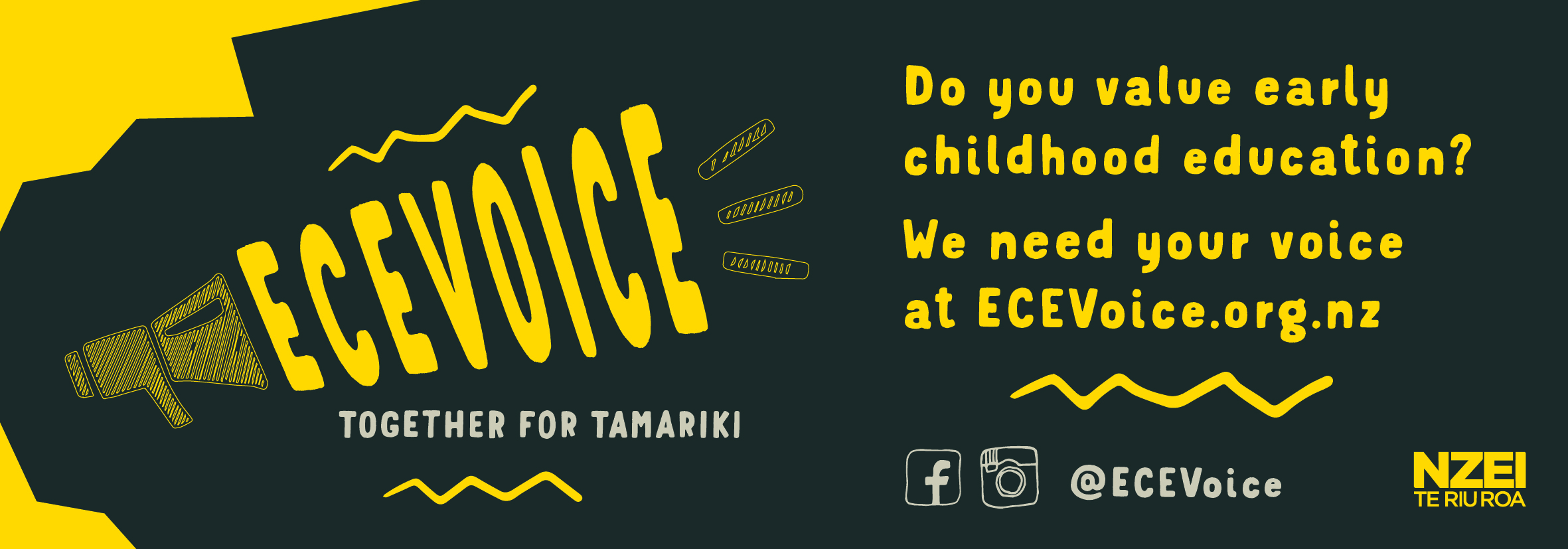Union leading campaign for fair deal this weekEarly childhood educators are calling for fair pay and better conditions this week. |
Lack of pay parity and funding in the early childhood sector is creating a divide, a qualified teacher says.
Chelsey Fegan, of Dunedin, has been an early childhood teacher for the past 10 years and has witnessed the changes and challenges in the industry.
When she first started teaching in 2010 there was a big funding cut which, despite promises from the Government, has never quite been restored.
The lack of funding and pay meant some centres had to increase their fees, some teachers had to fund their own professional development and others left the industry altogether.
“The main thing is, which I didn't realise until I became quite active in the union, the divide in teachers across the sector.”
She assumed all teachers with similar qualifications and experience were on similar pay scales.
“The main challenge is not feeling equal with our colleagues.
“The divide in pay is dividing us as a sector, and we're not all united because we’re all on different agreements and different contracts.”
Since becoming active in the union and speaking to other early childhood teachers, she learnt that many were only getting paid a minimum rate when they should be earning more.
Another challenge was getting the industry the recognition it deserved.
“I think a lot of people think we're glorified babysitters [but] we should be as valued as primary.”
The first three years of a child's life was “crucial” and early childhood teachers were helping to shape that.
The lack of funding was affecting children, she said.
The current teacher to child ratios are 1: 5 for under twos, and 1;10 for over twos.
“As a sector, we want to lower those ratios, especially with infants and toddlers. We want to lower this ratio to one to three, when you think about the one on one nature with infants and toddlers, these ratios just aren’t good enough for our precious children.”
“Over my 10 years I've seen children have to leave the centre I was at because my boss had no choice but to raise the fees because the funding kept going down.The sector outlined this request within the ten year Early Childhood strategic plan through a consultation process with the government recently, but no action on this request has been taken yet.
“She wanted to stay open and stay a quality early childhood centre with qualified staff.”
Teachers were left wondering if they were still going to have jobs and families had to find new centres and change their routines.
She said parents should not have to uproot their children because of an increase in price.
 Early childhood teacher Chelsey Fegan Photo: Jessica Wilson
Early childhood teacher Chelsey Fegan Photo: Jessica Wilson

“I think all centres should be affordable and it's up to parents to choose which fits in with them.
“Centres shouldn't have to look into putting their fees up to survive.”
While most centres had enough resources for the children, there was not a lot left for teachers especially when it came to professional development.
Like many other teachers, she once paid to attend a course in Wellington because she knew her then-boss wouldn’t be able to, due to the funding cuts..
“It was out of my pocket but I did it because I'm passionate about it.
“I wanted to work with infants and toddlers and that was good professional development but I couldn’t afford to do that now.”
“A lot of teachers miss out because they can't afford it.Although there were opportunities for teachers in Dunedin, there were more for their North Island colleagues.
“The centres can only do so much with they money they get.”
At a recent New Zealand Educational Institute hui, there was a discussion about how staff in some retail stores were on a similar pay scale to early childhood teachers.
“For some teachers I know it's been tempting to earn the same money in a job with less stress [and] without a student loan.”
Although Chelsey had thought about leaving the industry, she was passionate about it and wanted to stick around to see some changes.
“My lecturers at university always said you've got to fight the good fight.
“You've got to fight for early childhood.”













